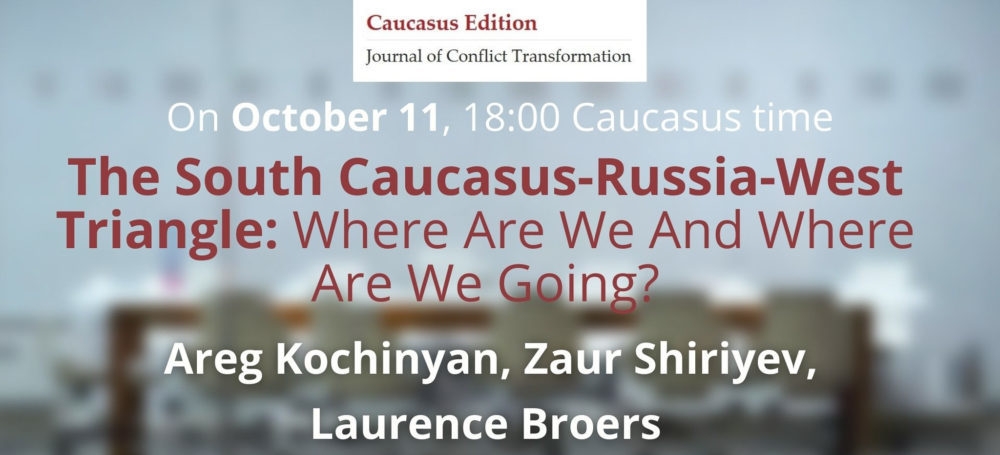
Once known as the region of “frozen conflicts,” the South Caucasus is now an arena of ongoing violence, mass displacement, and geopolitical contestation. Azerbaijan has been on an ongoing offensive, most recently taking full control of Nagorno-Karabakh and leading to displacement of its entire Armenian population. The increasing chasms between Yerevan and Moscow on the one hand and between Tbilisi and the West on the other; the inaction of Russian peacekeepers and Azerbaijan’s claim towards a status of regional power — all this aids to the renewed geopolitical contestation of the region.
Areg Kochinyan the President of the Research Center on Security Policy, Zaur Shiriyev Analyst for South Caucasus at the International Crisis Group, and Laurence Broers an Associate Fellow at the Russia & Eurasia Programme at Chatham House joined Philip Gamaghelyan, Editor at Caucasus Edition, Assistant Professor at the Kroc School of Peace Studies, University of San Diego, to discuss:
- Why President Aliyev did not attend the anticipated Granada meeting?
- What is the most efficient format for negotiations?
- What is Russia’s vision for the Armenian-Azerbaijani peace process?
- How has Yerevan’s policy towards Russia transformed between 2020 and now?
- Now that Azerbaijan put an end to the Nagorno-Karabakh conflict, what will be the new enmity or what will be the new identity politics?
- What are the potential spoilers for signing an official peace agreement between Azerbaijan and Armenia?
- What are the options for the Armenian population of Nagorno-Karabakh?
Archived comments
A widely overseen factor for armed conflict seems to be a culture of violence in a country that starts already in the families. Austrian peace researcher Franz Jedlicka has published some articles (and an ebook) about it.
Best regards Paul